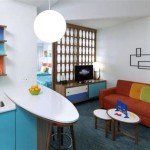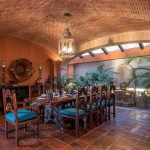Interior Design Career Path: A Comprehensive Guide
Interior design is a dynamic and rewarding field that blends creativity, technical skills, and a deep understanding of human needs. It involves planning, coordinating, and managing the design of interior spaces, ensuring functionality, aesthetics, and safety are all met. A career in interior design offers a diverse range of opportunities, from residential projects to commercial spaces and everything in between. This article provides a comprehensive guide to the interior design career path, outlining the necessary steps, key skills, and potential specializations.
Education and Training
The path to becoming an interior designer often involves a combination of education and experience. A formal education is highly recommended, as it provides a solid foundation in design principles, history, theory, and practical skills. Here are common educational pathways:
- Bachelor's Degree in Interior Design: This four-year program offers a comprehensive curriculum covering design fundamentals, space planning, lighting, materials, furniture selection, and building codes. It can be pursued at universities, colleges, and design schools.
- Associate Degree in Interior Design: This two-year program provides a focused introduction to interior design, equipping students with basic skills and knowledge. It serves as a steppingstone to a bachelor's degree or direct entry into the field.
- Certificate Programs: These shorter programs offer specialized training in specific areas, such as residential design, commercial design, or sustainable design. They can be beneficial for individuals with prior design experience or those seeking to enhance their existing skillset.
Beyond formal education, internships and apprenticeships are valuable for gaining practical experience, networking, and developing professional skills. Many design firms offer internships to students and recent graduates, providing real-world exposure to projects, client interactions, and design processes.
Key Skills and Qualities
Successful interior designers need a blend of technical, creative, and interpersonal skills. Here are some essential qualities:
- Design Skills: A strong understanding of design principles, including composition, color theory, balance, and harmony, is crucial. Interior designers must be able to create visually appealing and functional spaces.
- Technical Skills: Proficiency in computer-aided design (CAD) software, such as AutoCAD or Revit, is vital for creating detailed plans and drawings. Knowledge of building codes, construction materials, and lighting design is also essential.
- Communication Skills: Effective communication is key for interacting with clients, contractors, and other professionals. Designers must be able to articulate their ideas clearly, understand client needs, and present design concepts effectively.
- Problem-Solving Skills: Interior designers often face unique challenges and constraints within existing spaces. Adaptability, resourcefulness, and the ability to find creative solutions are essential.
- Business Acumen: Understanding the financial aspects of design projects, including budgeting, billing, and contract negotiation, is important, especially for self-employed interior designers.
Specialization Areas
Interior design offers a wide range of specializations, catering to different interests and skillsets. Some common areas include:
- Residential Design: Focusing on the design of homes, apartments, and other residential spaces. Residential designers work with clients to create comfortable, functional, and aesthetically pleasing living environments.
- Commercial Design: Specializing in the design of commercial spaces, such as offices, retail stores, restaurants, and hotels. Commercial designers must consider factors like functionality, brand identity, and traffic flow.
- Healthcare Design: Focusing on the design of hospitals, clinics, and other healthcare facilities. Healthcare designers prioritize patient comfort, safety, and accessibility, creating healing and supportive environments.
- Hospitality Design: Specializing in the design of hotels, resorts, and other hospitality venues. Hospitality designers focus on creating inviting and memorable experiences for guests, paying attention to aesthetics, functionality, and guest flow.
- Sustainable Design: Incorporating environmentally friendly principles and materials into interior design projects. Sustainable designers prioritize energy efficiency, resource conservation, and healthy indoor environments.

Careers In Interior Design The Ultimate Guide Nyiad

Career Path To Become An Interior Designer Tutorial

Want To Be An Interior Designer Designteacher

The Path To Professional Status

Jobs For Interior Design Graduates Aceplp

Interior Design Career Path Chart Degree Tips

Interior Design Institute And Course Inifd Ahmedabad Gujarat

Scope Of Interior Designing Job Designer

Career Opportunities After Completing An Interior Design Degree Course Amor Institute

Pin By Awesome Resources On Career Pathways Interior Design Industry Sectors








